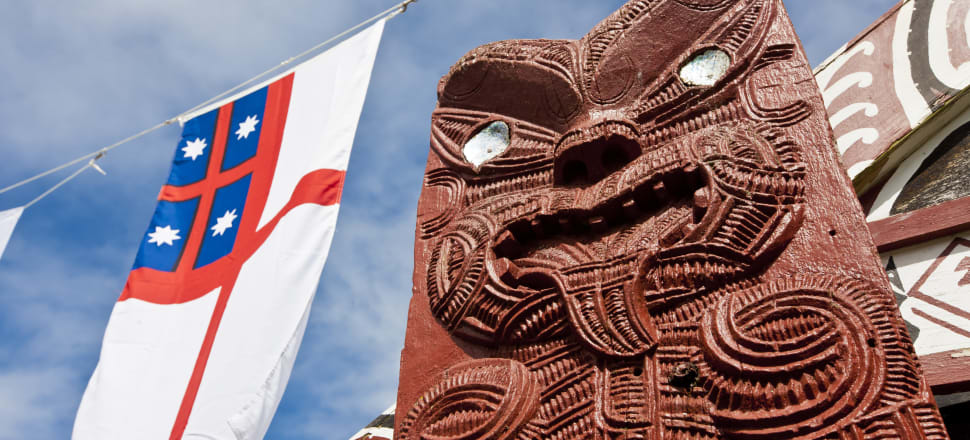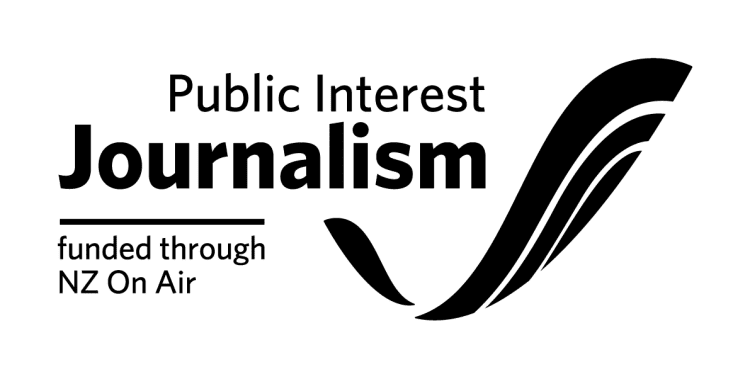
Two reports on racism in New Zealand released by the Human Rights Commission land at a time when political rhetoric around racism is escalating again. Aaron Smale reports.
The Human Rights Commission has released two reports that make a number of significant recommendations for confronting white supremacy and institutional racism.
But one warns that "the prevailing Pākehā tendency is to avoid acknowledging, recognising, or changing institutional racism."
The commission established a National Anti-Racism Taskforce with two caucuses representing tangata whenua and tangata tiriti, commissioned to write two reports, Maranga Mai and a separate report, Ki te whaiao, ki te ao Mārama. The views and recommendations of the reports, which have been presented to the Ministry of Justice, are not the official position of the commission itself.
The reports recommend:
- the government commits to constitutional reform
- establish a three year Truth, Reconciliation and Justice Commission
- establish an independent body, or bodies, and a process to uphold Te Tiriti o Waitangi and tangata whenua human and indigenous rights and eliminate racism in Aotearoa
- Appoint an Indigenous Rights Commissioner under urgency within the commission and explore the option of an independent Indigenous Rights Commission
The report writers engaged with more than 400 people, in 23 online hui, and received 470 online submissions about people’s experiences of racism and their views on the best options for its prevention and elimination. The reports describe the history of racism in Aotearoa and how it has affected Maori and ethnic and religious communities. They make a number of recommendations aimed at eliminating racism in key sectors such as housing, employment, work and income, health, education, and criminal justice.
The Maranga Mai report says "the prevailing Pākehā tendency is to avoid acknowledging, recognising, or changing institutional racism."
Tina Ngata from the tangata whenua caucus says the report will inevitably ruffle feathers, but that is partly because people have not been exposed to the history that the report is highlighting.
"It's expected that it will go against the grain. If we weren't living in such racialised times then the need for a report like Maranga Mai would be a moot point. So of course, it's going to stoke numerous anxieties around the place and that's to be expected. Te Puao Te Atatu did when it came out, as did Whaipaanga Hou when it came out, as did Matike Mai when it came out. Every single time a report like this is put out, of course it's going to go against the dominant grain."
Ngata encourages those who are ready to criticise the reports to pause and listen to the experiences of those who have been damaged by racism, rather than seeing it as a threat to their position in society.
"I think the vast, vast majority of us like to think of ourselves as being just people. And we all have different ideas of what justice might look like, or what constitutes an injustice. And you can often see, particularly white supremacists will try to frame equity, acts of equity or policies targeted achieving equity, they'll try to frame that as an injustice against white people."
Ngata hopes the reports will lead to greater understanding of what institutional racism is and how to bring about change addressing the injustices of racism.
"It's about a clear articulation of justice and for people to be able to understand within the broader scope of a story that has largely been denied. A lot of this has not been articulated before. As somebody who runs workshops on the Doctrine of Discovery, the most dominant thing that I hear from so many people in my workshops is 'why didn't I know? Why wasn't I taught about this?' It changes everything. And so there's going to be a significant portion of society and of our communities, who really just need the vision of justice to be more clearly framed.
"You need kind-of clarion calls that will just clearly articulate what justice can and should look like regardless of what the climate is prepared to listen to. And if you don't do that, then you can wind up with kaupapa drift. You can wind up drifting off track if you're always going to be guided by what the current climate is going to allow you to say or is going to be amenable to you saying."
Anjum Rahman from the tangata tiriti caucus said the reports "realistically reflect what people are thinking and wanting and what they've experienced."
The reports may be unwelcome in some quarters but the writers believed they had an obligation to speak out anyway to create a different future for generations to come.
"We can't be fazed by the political climate. I think that work needs to continue, that voices need to be raised, that we need to keep pushing for change."
"I would like to ask our politicians and political leaders to be brave. And to stand against using these reports and anti-racism work to build their profile to just attack people of colour and build their profile. Because unfortunately it's true throughout both human history and throughout all cultures and countries that you pick a minority group and target them as a threat. And it gives you a lot of visibility, and it gives you a lot of political power. And this is a time for our political leadership's of all kind where they could actually stand up and say, we're not doing that."
Rahman said the research that went into compiling the reports uncovered a lot of hurt and trauma people had experienced as a result of racism.
"We've travelled to 46 towns and cities and talked to a whole range of New Zealanders not just Maori or ethnic, but everyone. Honestly, the stories and the experiences just break your heart. Particularly for the Ministry of Justice engagements, and even some of ours, there were almost always tears. There's so much trauma and so much pain around what people are experiencing. And we have to keep talking about it. And we have to keep writing about it. And we have to keep pushing for change, whether people are listening or not listening. It is imperative that we keep speaking."
She said it also needed to be "more than conversation, we need to start moving towards systemic and structural change. It will happen, as the population shifts, we'll make it happen."
Race Relations Commissioner Meng Foon said the reports show racism continues to be a problem in New Zealand.
“We all have the right to be treated fairly and to be free from racial discrimination. The institutional and inter-personal racism occuring daily in our society represents a clear breach of human and indigenous rights,” he said.
“We have heard from tangata whenua and many other communities that racism continues to have a negative effect on them and their whānau. A much more positive future will be achieved when He Whakaputanga and Te Tiriti o Waitangi are recognised as the founding documents of Aotearoa."
“Alongside their experiences of racism, people also shared their ideas and aspirations for a future free of racism. An Aotearoa that gives effect to the inclusive promise of Te Tiriti to uphold the tino rangatiratanga of tangata whenua and provide a place to stand for all tangata tiriti ,” he said.
Chief Human Rights Commissioner Paul Hunt says the reports show New Zealand still has a long way to go to address racism.
“The report provides a crucial perspective on extremely challenging issues which will define Aotearoa for years to come. It compels us to acknowledge the white supremacy and institutional racism woven into the fabric of the colony as immigrants settled in these islands,” he said.
A three-year Truth, Reconciliation and Justice Commission, as recommended by the report, would aid understanding of the injustices affecting Māori and help with the healing and reconciliation, Hunt said. It would also provide a path to realising constitutional certainty before the bicentenary of Te Tiriti in 2040, he said.
Maranga Mai! explains that the government has obligations to Maori under both the Treaty of Waitangi and the United Nations Declaration on the Rights of Indigenous Peoples (UNDRIP).
National anti-Racism Taskforce member Dr Rawiri Taonui said “the tangata whenua and tangata tiriti caucuses have called for bold action to halt racism in Aotearoa that continues to affect vulnerable communities.
“Many people from tangata whenua, Pacific, Asian, Pākehā and many other communities spoke to the issue of racism, including the ongoing injustice resulting from colonisation, and the importance of addressing racism and respecting diversity as a strength to bring the country together.
“We have the opportunity to stop the ongoing negative effects of colonisation, racism and white supremacy and move towards a positive future as a country where we have greater respect for each other,” he said.








